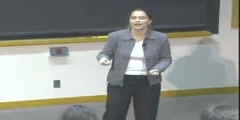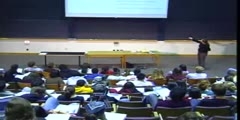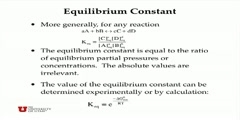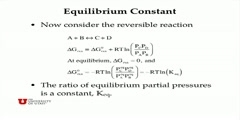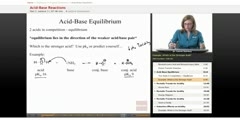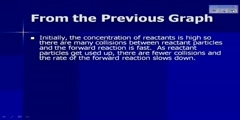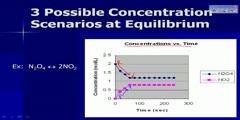Lec 2- Utilities, Endowments, and Equilibrium
"Lec 2- Utilities, Endowments, and Equilibrium" Financial Theory (ECON 251) This lecture explains what an economic model is, and why it allows for counterfactual reasoning and often yields paradoxical conclusions. Typically, equilibrium is defined as the solution to a system of simultaneous equations. The most important economic model is that of supply and demand in one market, which was understood to some extent by the Ancient Greeks and even by Shakespeare. That model accurately fits the experiment from the last class, as well as many other markets, such as the Paris Bourse, online trading, the commodities pit, and a host of others. The modern theory of general economic equilibrium described in this lecture extends that model to continuous quantities and multiple commodities. It is the bedrock on which we will build the model of financial equilibrium in subsequent lectures. 00:00 - Chapter 1. Introduction 07:04 - Chapter 2. Why Model? 13:30 - Chapter 3. History of Markets 24:41 - Chapter 4. Supply and Demand and General Equilibrium 37:59 - Chapter 5. Marginal Utility 45:20 - Chapter 6. Endowments and Equilibrium Complete course materials are available at the Open Yale Courses website: http://open.yale.edu/courses This course was recorded in Fall 2009.
Video is embedded from external source so embedding is not available.
Video is embedded from external source so download is not available.
Channels: Finance
Tags: Lec 2- Utilities, Endowments, and Equilibrium
Uploaded by: yalefinancialth ( Send Message ) on 12-09-2012.
Duration: 72m 17s
Here is the next lecture for this course
Lec 3 - Computing Equilibrium
01:14:31 | 3238 viewsHow chemical equilibrium is achieved in cells
01:28 | 18347 viewsChemical Science - Chemical Equilibrium - ...
42:55 | 24637 viewsChemical Science - Chemical Equilibrium ( ...
44:32 | 18742 viewsChemical Science - Acid-Base Equilibrium: ...
49:24 | 8553 viewsVideo lecture: acid-base equilibrium
50:05 | 19959 viewsLecture on acid-base equilibrium part 2
48:13 | 8664 viewsThe Chemical Equilibrium Part-2
07:52 | 4765 viewsChemical Equilibrium
09:24 | 6488 viewsWhat is Entropy and Equilibrium
08:21 | 5054 viewsEquilibrium in Acids And Base
04:24 | 6423 viewsEquilibrium
07:45 | 4001 viewsEffect of Temperature on an Equilibrium R ...
03:30 | 8141 viewsIntroduction to Chemical Equilibrium Par ...
10:22 | 4860 viewsIntroduction to Chemical Equilibrium Part ...
07:32 | 5166 viewsNo content is added to this lecture.
This video is a part of a lecture series from of Yale
Lecture list for this course
Lec 4- Efficiency, Assets, and Time
Lec 5- Present Value Prices and the Real Rate of Interest
Lec 6 - Irving Fisher's Impatience Theory of Interest
Lec 7 - Shakespeare's Merchant of Venice and Collateral, Present Value and the Vocabulary of Finance
Lec 8 - How a Long-Lived Institution Figures an Annual Budget. Yield
Lec 10 - Dynamic Present Value
Lec 12 - Overlapping Generations Models of the Economy
Lec 13 - Demography and Asset Pricing: Will the Stock Market Decline when the Baby Boomers Retire?
Lec 14 - Quantifying Uncertainty and Risk
Lec 15 - Uncertainty and the Rational Expectations Hypothesis
Lec 16 - Backward Induction and Optimal Stopping Times
Lec 17 - Callable Bonds and the Mortgage Prepayment Option
Lec 18 - Modeling Mortgage Prepayments and Valuing Mortgages
Lec 19 - History of the Mortgage Market: A Personal Narrative
Lec 21 - Dynamic Hedging and Average Life
Lec 22 - Risk Aversion and the Capital Asset Pricing Theorem
Lec 23 - The Mutual Fund Theorem and Covariance Pricing Theorems
Lec 24 - Risk, Return, and Social Security
Lec 25 - The Leverage Cycle and the Subprime Mortgage Crisis



